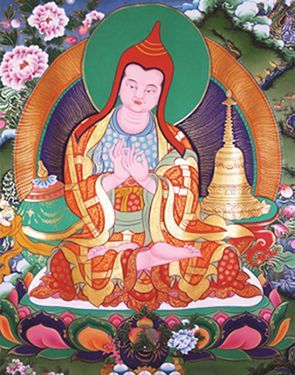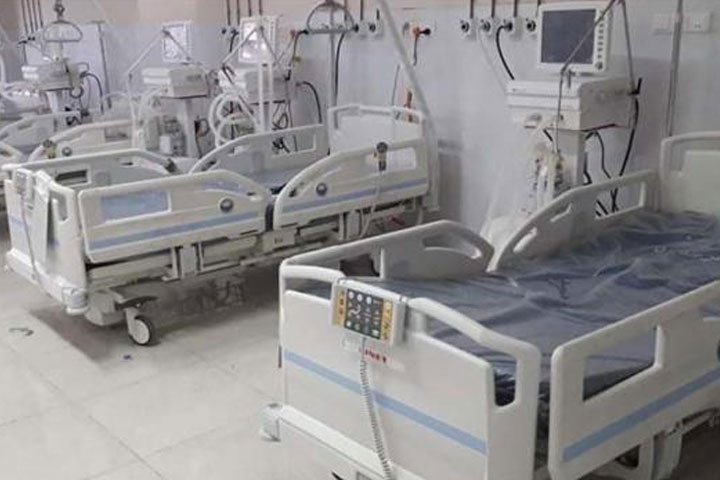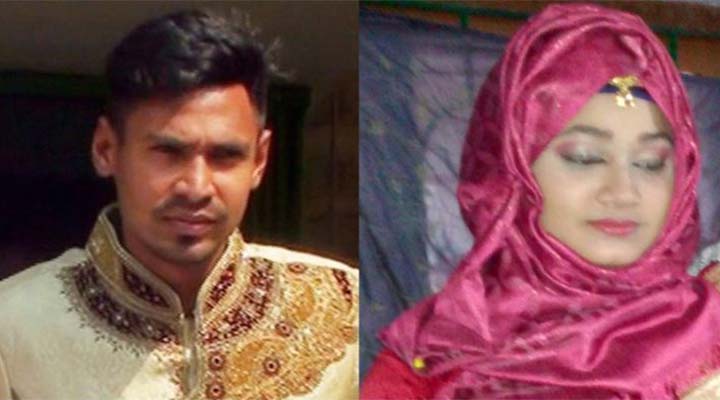PM asks for making upazila master plan
Prime Minister Sheikh Hasina asked the LGRD ministry to sketch out a master plan to build up all upazila under a specific development design aimed at protecting cropland and check sporadic construction of buildings, roads and other structures.
“Unplanned development of the upazilas should be regulated and roads and ways of the upazilas should have to be made in a planned manner to save
cropland as well as public money,” she said while visiting the Local Government, Rural Development (LGRD) and Cooperatives ministry at Bangladesh Secretariat in the capital on Sunday. Reports BSS.
The master plan should have a complete layout for housings, hospitals, markets, schools, colleges, playgrounds, agricultural farms, industries and other facilities, she said, adding that people would accept the concept if “we can do this once properly”.
Referring to the Bangabandhu’s initiative to constitute 60 districts, the Prime Minister said Bangabandhu made every district as an administrative unit to carry out development works, adding that “We should also do something like that to ensure development from grassroots level”.
Minister for LGRD and Cooperatives Md Tazul Islam gave welcome address while it’s State Minister Swapan Bhattacharjee and Secretary SM Golam Faruk and senior officials of the ministry and Prime Minister Office were present.
The Prime Minister said the government is mulling to prepare annual budget separately for every district and upazila considering its size, population and geographical aspects to meet the demands of the local people, reach the services to the doorsteps of the people and ensure optimum utilization of public money.
Pointing out the importance of the LGRD Ministry for country’s development, the premier said her government wants to decentralize the administration gradually aimed at strengthening the local government bodies, engaging them in their local development initiatives and making all development sustainable.
“We give highest budget allocation for the LGRD ministry. We will be able to alleviate poverty to a larger extent if the LGRD ministry functions properly,” the Prime Minister said, adding that the country would go ahead as quick as “we can free the country from poverty”.
The Prime Minister said her government is taking overarching programs for development of education, healthcare and other sectors. But there should have plan considering the basic needs of the people living in village and town areas, she said.
The premier said the LGRD and Cooperatives Ministry is very important in terms of its size, activities and budget allocation. The tasks of the ministry are multifaceted and most important task of it is to ensure safe drinking water for the people, sanitation, development of rural roads and ways. So, “we have to accomplish many tasks under the ministry with a very specific plan,” she said.
Sheikh Hasina said the ‘one house, one homestead’ project had been initiated so that every fallow land come under cultivation and rural people sell their produces under a cooperative system to help them find a source of income.
The Prime Minister said military rulers destroyed the strength of mind of the people as a victorious nation. As a result, people were not yearning to work for the country from their respective fields and Bangladesh was branded very negatively across the world, she added.
Sheikh Hasina said Father of the Nation Bangabandhu Sheikh Mujibur Rahman liberated the nation to bring smile on the faces of the millions, but could not complete his dream. “We have to give importance to rural people and development should have to be taken place at grassroots level if we want the country to forward towards prosperity.”
Laying importance on strengthening cooperative movement, the Prime Minister said her government, as prescribed in the constitution, has given importance on the public and private sector as well as cooperatives.
She said Bangabandhu had envisaged for building every village under a planned way where better housing facilities, playgrounds, hospitals, croplands along with other civic amenities would exist. It’s a very difficult task to meet the demand of huge population on a small land like Bangladesh, she added.
“So, we have to take our own development programs considering the geographical aspects, weather, soil condition and demography,” she also said.
The Prime Minister said many tasks initiated by her government in 1996-2001 tenure were not completed by the next BNP government. But, it was an immense opportunity for her government to work for the nation for ten years since 2009 and take the nation on the way of a developing country, she continued.
She expressed her firm conviction that Bangladesh would celebrate the golden jubilee of the independence as a hunger and poverty free nation, saying none would neglect Bangladesh in future.
AH
10 Feb 2019,16:37

















 Live Tv
Live Tv





